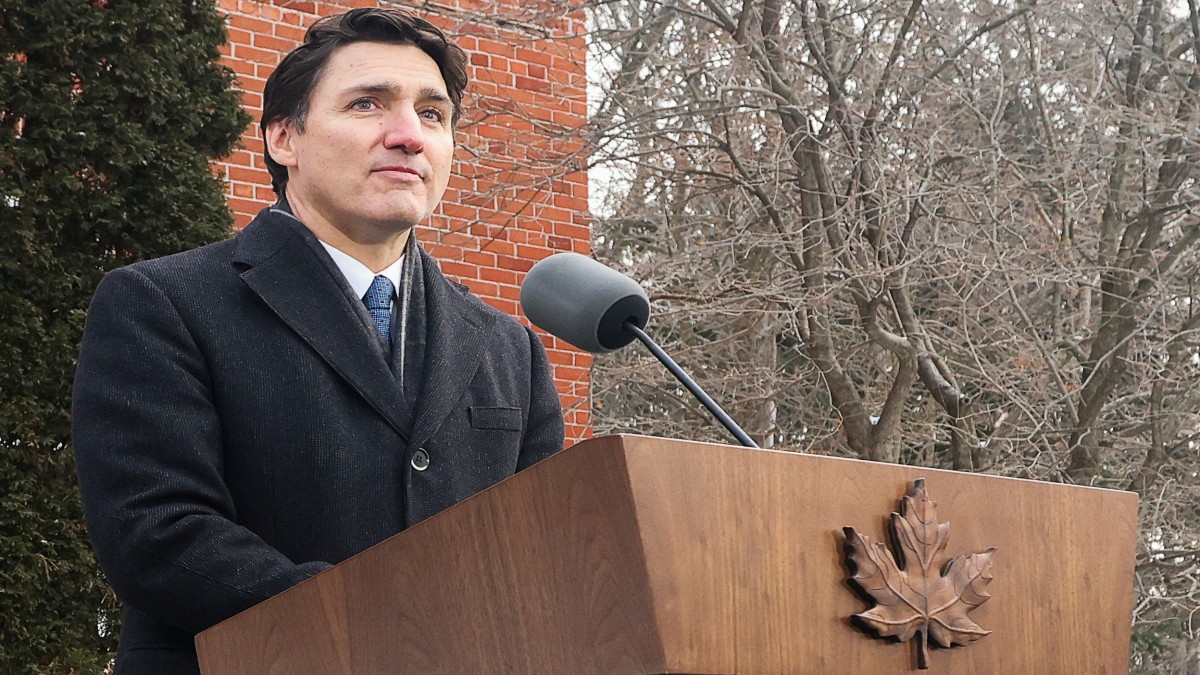On Monday, Justin Trudeau announced his resignation as Canadian Prime Minister and Liberal Party leader at a press conference at Rideau Cottage.
His resignation comes in the face of a revolt from his party and a surge in public popularity as polls indicate that Pierre Poilievre's Conservatives will oust him in the upcoming federal elections.
Justin Trudeau is probably going to stay on as interim prime minister until a new leader is chosen or the party can produce one.
Here’s a look at contenders who are likely to replace Trudeau.
Chrystia Freeland
Freeland is seen as a strong contender for the leadership position due to her extensive international experience and economic knowledge.
The government entered a crisis when Freeland, who was Trudeau’s Finance Minister and Deputy Prime Minister, abruptly resigned over disagreements with Trudeau on US President-elect Donald Trump’s trade threats.
The 56-year-old, who was born to a Ukrainian mother in Alberta’s western province, worked as a journalist before entering politics. In 2013, she joined the House of Commons, and two years later, after Trudeau swept the party to victory, she joined his cabinet with a trade brief.
As finance minister and foreign minister, she oversaw Canada’s economic response to the COVID-19 pandemic and renegotiated a trade agreement with the US and Mexico.
Her longstanding ties to Trudeau’s leadership, however, could work against her.
Mark Carney
Carney , 59, a former governor of the Bank of Canada and the Bank of England, has long been viewed as a possible Liberal leader.
“He would be an outstanding addition at a time when Canadians need good people to rise up in politics,” Trudeau said in July 2024, praising him personally.
While he has a vast knowledge of economic and environmental concerns, his lack of political experience may hurt his leadership bid.
Dominic LeBlanc
The 57-year-old is a close ally of Trudeau and a senior member of the Liberal Cabinet.
Because of his extensive political background, LeBlanc is a strong contender for the position of leader.
Following Freeland’s resignation, LeBlanc took over as the Finance Minister .
According to a source who spoke to The Globe and Mail, Trudeau talked about whether LeBlanc, who is not as popular as Freeland, would be open to taking over as interim leader.
Mélanie Joly
Joly, the foreign minister and a close confidante of the troubled prime minister, is another leading candidate to succeed Trudeau.
The 45-year-old is still a formidable rival despite criticism for how she has handled Canada’s disputes with China, Russia, and India.
Her close ties to Trudeau’s administration and her foreign policy outreach, however, might make it more difficult for her to win over voters.
François-Philippe Champagne
The 54-year-old, known as “Canada’s Energiser Bunny,” is a trade, international, and business professional with political experience.
The native of Quebec is a strong candidate to succeed Trudeau as the leader of the party.
Although he has trouble winning over moderate voters, liberal leaders in the province believe that his progressive views make him a good candidate for party leader.
Christy Clark
Clark, a former premier of British Columbia, has also indicated her desire to replace Trudeau as party leader.
A well-known figure in Canadian politics, the 58-year-old is among the Liberal politicians who support Trudeau’s removal. She has also accused him of “stoking divides.”
Anita Anand
One possible replacement to lead the party is Anita Anand , the former Defense Minister and current Minister of Transport and Internal Trade. Her parents were Indian doctors from Punjab and Tamil Nadu.
The 57-year-old, who attended Oxford, is a scholar and lawyer. As Minister of Public Services and Procurement from 2019 to 2021, she achieved recognition for spearheading contract talks to procure medical equipment during the peak of the COVID-19 pandemic.
In her latter role as defence minister, she oversaw issues involving military misconduct and backed Ukraine in its conflict with Russia.
Anand has been moved between portfolios despite her accomplishments, which some see as a hint of conflict with Trudeau.
George Chahal
Another Indian-origin interim leader, Alberta Liberal MP George Chahal, is also in the line for the top post.
Chahal is a community leader and advocate who has worked on several committees. He is the chair of the Sikh Caucus, the chair of the Standing Committee on Natural Resources, and the Calgary City Councillor for War 5.
He has been critical of Trudeau, asking him to resign and the party to start a leadership race.
However, since it is customary for the interim leader to not run as a candidate, Chahal will not be eligible to compete for prime minister if he is chosen as interim leader.
Pierre Poilievre
Poilievre has established himself as an avid critic of Liberal policy in his role as leader of the Conservative Party.
His emphasis on economic concerns, especially inflation, speaks to many Canadians who are fed up with growing expenses.
But his divisive language might turn off neutral voters, and his future could rely on bringing the right-wing base together while still winning over a wider range of people.
What’s next
The Liberal Party has two options following Trudeau’s resignation.
On the national caucus’ advice, the party would either run a short leadership contest or name an interim leader.
According to The Globe, a leadership contest would need the PM asking Governor-General Mary Simon to prorogue Parliament, which constitutional experts believe is not a given.
But while the Liberals prepare a special leadership convention, they are probably going to designate an interim leader to succeed Trudeau.
With inputs from agencies


)

)
)
)
)
)
)
)
)



